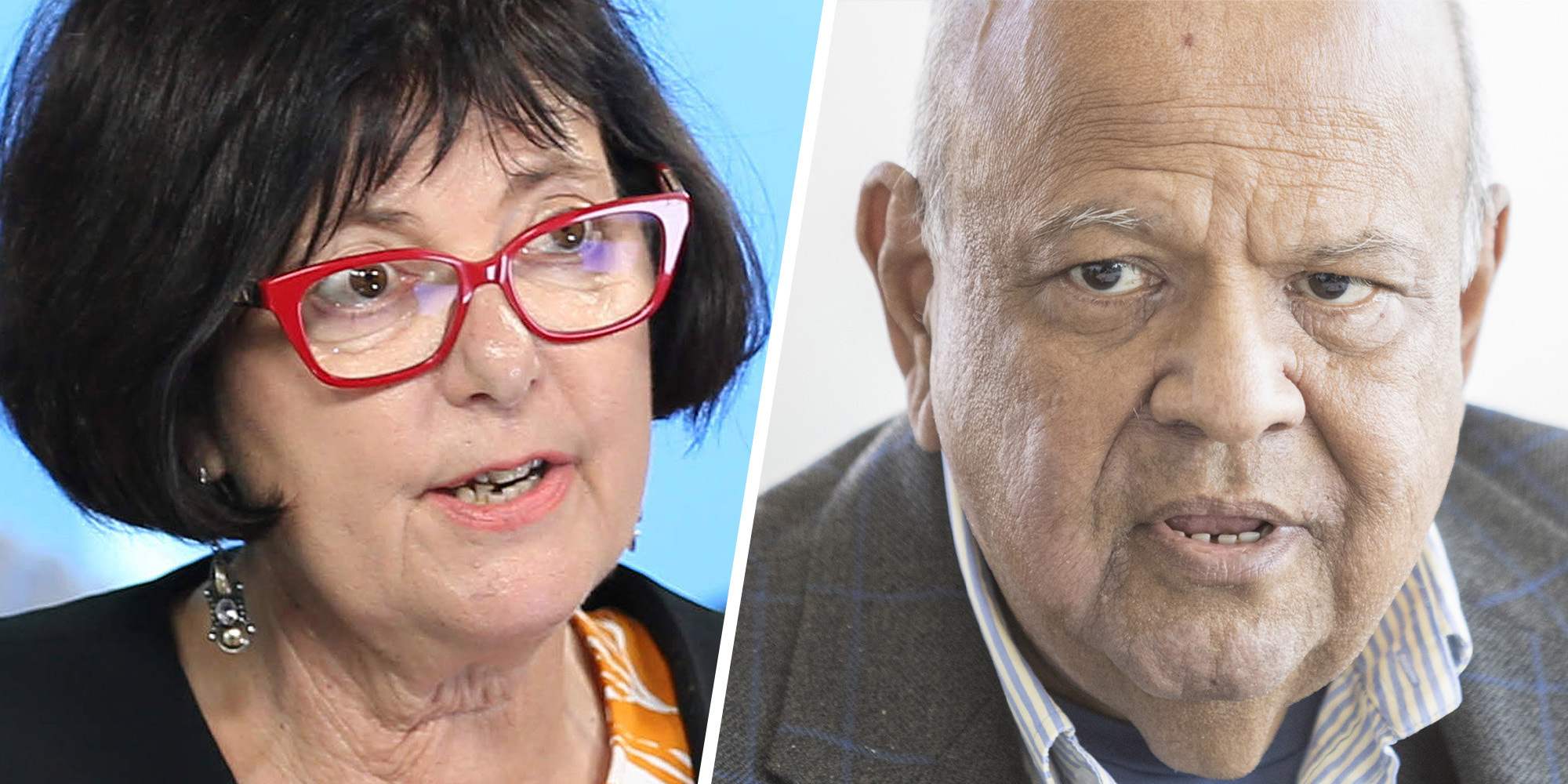‘In order to pursue the greater good, you have to enable some people to eat a little bit,” is what Eskom’s former CEO, André de Ruyter, said a senior government minister had told him. He disclosed this during an interview with eNCA’s Annika Larsen, which revealed the extent to which State Capture is continuing at Eskom.
https://youtu.be/6gF2dYQ-NdM
De Ruyter said he feared oversight and governance of the government’s $8.5-billion Just Energy Transition Investment Plan (JET-IP), which includes concessional loans, grants and other funds, would be watered down to allow political interests to take a cut from the world’s second-biggest transfer of green energy funding from the rich to the developing world.
Two Cabinet ministers who worked closely with De Ruyter have denied that it was they who made the remark. The two are Minister of Public Enterprises, Pravin Gordhan, to whom De Ruyter reported, and Minister of Forestry, Fisheries and the Environment, Barbara Creecy, who partnered with the former utility boss to negotiate the green transition mega deal at the COP27 meeting in Egypt last year.
Visit Daily Maverick’s home page for more news, analysis and investigations
Gordhan told Newzroom Afrika that De Ruyter had spoken to him about corruption at Eskom. However, Gordhan’s aides denied that he had, in turn, told De Ruyter to expect some shrinkage.
“I don’t think that is the Minister’s language. PG (Pravin Gordhan) is not in any peripheral way involved with the JET-IP,” said one aide. The minister calls himself a “progressive pragmatist”, said the official, but he had a history of opposing corruption and his pragmatism did not include allowable corruption.
“Minister Pravin Gordhan would like to state for the record that he abhors corruption in all its manifestations and condemns it in the strongest terms,” said Public Enterprises spokesperson Richard Mantu.
“The Minister urges all South Africans, regardless of their positions in society, to distinguish between suspicion, rumour and evidence. We also know that state capture in the formal sense might have ended, but corruption is still a scourge we must eradicate from our entities and Eskom is no exception in this regard,” he said.
Barbara Creecy’s office said she couldn’t recall a discussion with De Ruyter that some people had to “eat” from the green energy investment programme.
“Minister Creecy doesn’t recall discussing Eskom and the governance of the $8.5-billion from the international partners with Mr De Ruyter. She remains strongly opposed to corruption,” said her spokesperson, Albi Modise.
She said the National Treasury had led and concluded loan negotiations with the French and German development banks.
“Currently, the Presidential Climate Commission is consulting stakeholders on the content of the investment plan and on issues relating to governance, implementation and accountability. The outcomes of these consultations will inform how the plan will be implemented and necessary governance arrangements established,” said Modise.
Countries that negotiated and will fund the plan are getting jittery at the lack of political commitment and the corruption allegations that have surfaced around the plan. They include the UK, Germany and France.
Daily Maverick’s Ethan van Diemen reported below on the groundbreaking and much-heralded plan.
https://www.dailymaverick.co.za/article/2022-11-12-what-the-world-is-learning-from-south-africas-nascent-just-energy-transition-investment-plan/
De Ruyter did not respond to a request for comment. DM
Explainer
Where does the philosophy of “some people must eat a little bit” come from?
If, like me, you cover politics, the line De Ruyter heard would be a phrase quite common in political circles, from the ANC to opposition parties which govern in cities like Johannesburg, where I live.
The genesis traces back to a story often told by government officials and politicians. It is of a post-colonial African country (variously Uganda, Kenya or even Nigeria) and its South East Asian counterpart (variously Malaysia or Singapore).
In the story, in the South East Asian country, the allowable rent to corruption or political office-bearers is 10%, but the infrastructure (usually a bridge) is still built. In Africa, the rent extraction is 90%, and the bridge is never made.
The lesson, by the storyteller, is that in the developing world, “some people must eat a little bit”. It’s a version of this story that De Ruyter heard, and he was shocked, he told Larsen.
That story proves improbable in many African capitals, as fabulous infrastructure is rolled out. But in South Africa, we have now reached that point. The rent extraction is so extensive that the infrastructure does not get built at all, or does not function well for the cost.
The defective Medupi and Kusile power stations, for example, are a big part of why the high-stage power cuts are ruining South Africa. DM





